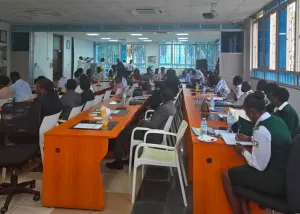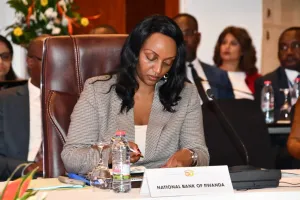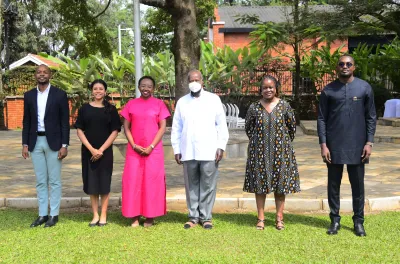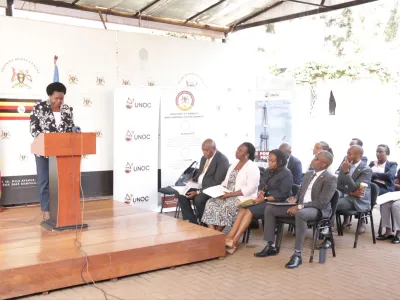
It is a perfunctory dream because a quick glance at the baseline status of the very indicators the planners used to come up with these projections tells its own story. It tells a story of a country whose great potential has always been impeded by a number of structural rigidities, some of whom are the very smart economists and social scientists this country has ever had, produced a standard development plan in Vision 2040. Anyway, that is what we (Ugandans) have always done, and we are popular about — penning very good plans, policies, and programs that are never implemented. Yet this is not what I set out to write about today. Unlike many commentators who have already set out to delineate the merits and demerits of the Vision 2040, my intention is to show you why planning was in the first place a mistake, and it is likely to derail even the little progress we were making.
Be wrong, but don’t stay wrong!
When I set out to write this column, back in May 2006, my maiden piece questioned the logic of our government to continue blindly implementing the Structural Adjustment Programmes (SAPs) even after the Bretton Woods Project had revealed in an internal World Bank report that “the poor are better off without structural adjustment.” The SAPs were a plan that the west sought to use, as the God-chosen few, to “help” the rest of us to transform our societies.
What is clear, however, is that no country that followed the SAPs has taken off. Almost all countries that declined these one-size-fits-all programmes have since taken off. Yet up to today we continue to implement these programmes. And we wonder why we have failed to advance! One wise man once said, “Be wrong, but don’t stay wrong.”
Mr President, I have often written in these very pages how our lack of historical memory, as Ugandans, inhibits us from learning from mistakes. We continue to pen long term plans yet the last time we planned we ended up with disastrous results. Ours is a country of plans without feedback. We keep on doing the same failed plan hoping that repetition might yield different results!
This government alone has, in the last 25 years, rolled out several failed utopian plans and programme with striking similarities. It started with the Economic Recovery Program (ERP) in 1987, followed it quickly with PAPSCA (Program for Alleviation of Poverty and Social Costs of Adjustment) in 1988, then the Entandikwa scheme in 1996, then PAF (Poverty Action Fund), PEAP (Poverty Eradication Action Plan), the PMA (Plan for Modernisation of Agriculture), PAP (Poverty Alleviation Program), and the National Vision 2020. When all these failed government launched Bonna Bagaggawale (Prosperity for All) and quickly also penned and rolled out a five-year plan, the National Development Plan (NDP), in 2010. Before even we get a situational report on the progress of the NDP, now we get the might Vision 2040.
Pick a leaf from success stories
Mr President, these are the utopian plans and projects that your government has adopted in the past 27 years. Empirical statistics shows that there is no Big Plan for ending poverty or transforming societies. All success stories — in countries like Japan, China, the East Asian Tigers, India, Turkey, Botswana, and Chile – do not give any simple blueprint to economic transformation. When one reads how each of these countries transformed their societies, one understands why NRM must stop dreaming about overnight transformation of Uganda through utopian plans like Bonna Bagaggawale or Vision 2040.
I recently read a book that gives a precise account of how China became a miraculous success story. It is documented that it all started in a small village of Xiaogang in Anhui province — the heart of China’s rice growing region. The story goes like this: Sometime in 1978, twenty families held a secret meeting that provided a pebble that started the landslide of Chinese economic miracle.
The villagers in Xiaogang were desperate because they were starving. The commune system was leading to a breakdown in food production in China. Because under this system everybody had a share in the land’s output whether they worked hard or not, people hardly worked.
The Xiaogang inhabitants reached a secret agreement to divide land and farm it individually, with each person keeping the output of his own land. Rice production shot up in this village and the results were so spectacular to stay a secret for long.
Neighbouring villages got to know how Xiaogang had increased rice production so much and they too put into place individual farming. Before long the communist authorities got to know due to spontaneous outbreak of property rights in the countryside.
Confronted with evidence of food production increase with individual farming, the provincial communist party officials gave their blessing and reported the development to authorities in Beijing. By 1982, a communist party conference ratified individual farming and by 1984, there were no communes left. As they say, the rest is history.
Call off all the utopian plans
China has in the last three decades grown into an economic powerhouse that has left twinges of jealousy at the G8 summits. As the G8 summon their endless summits to “design plans to transform the Rest of the world”, China is busy reducing poverty among its people through piecemeal gradual interventions.
Mr President, let your many planners at NPA not misguide you. A planner’s answer to a social problem is a plan. You and your top-down planners are suffering from information shortages about reality on the ground. We are on ground and we are telling you, you are off track. The Executive Director of NPA, Dr. Kisamba Mugerwa, is legendary at writing good plans that never yield results. He penned the Entandikwa scheme, the PMA, the NDP and now the Vision 2040.
Here is the only way this government will transform Uganda’s economy. Call off all the utopian plans and programs; use the money being squandered in these untenable plans to permanently fund road construction and maintenance, provide text books and train teachers, permanently provide drugs in clinics and hospitals, extend safe water to households, construct more electric power-generating dams, remove all market distortions, and meet other operating costs of development projects. Ugandans will not fail to fight their way out of poverty if public services and utilities are well distributed and in good shape, and there are markets for their products.
Mr President, I repeat, no BIG PLAN or programme can and will transform Uganda society from a peasant to a modern and prosperous country in the next 30, 50 or 100 years! Only community-pivoted market-oriented development based on the dynamism of individuals and firms, and anchored by public sector investment in development infrastructure, will deliver Uganda to the envisioned opulence.
According to Abba Eban men and nations ought to behave wisely once they have exhausted all other alternatives. In Uganda we simply donot want change, even when history has taught us that the routes we are taking are bound to lead us to unintended destinations! Indeed ours are visions without destiny













Ramathan Ggoobi
Ramathan Ggoobi is Policy Analyst, and Researcher. He lecturers economics at Makerere University Business School (MUBS) and has co-authored several studies on Uganda's economy. For the past ten years, he has published a weekly column 'Are You Listening Mr. President' in The Sunrise Newspaper, Uganda's Leading Weekly
Leave a Comment
Your email address will not be published.